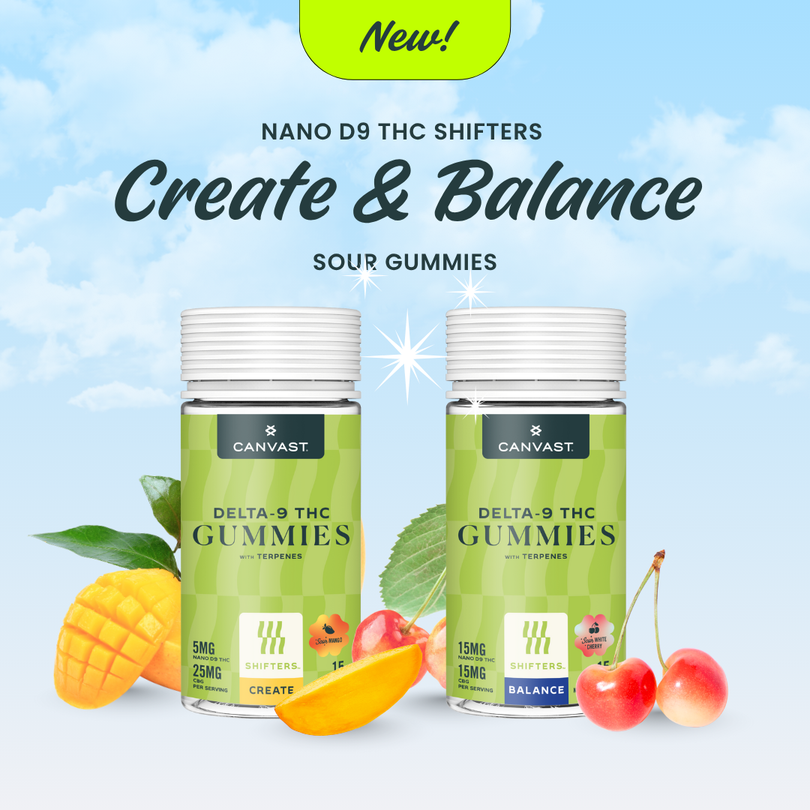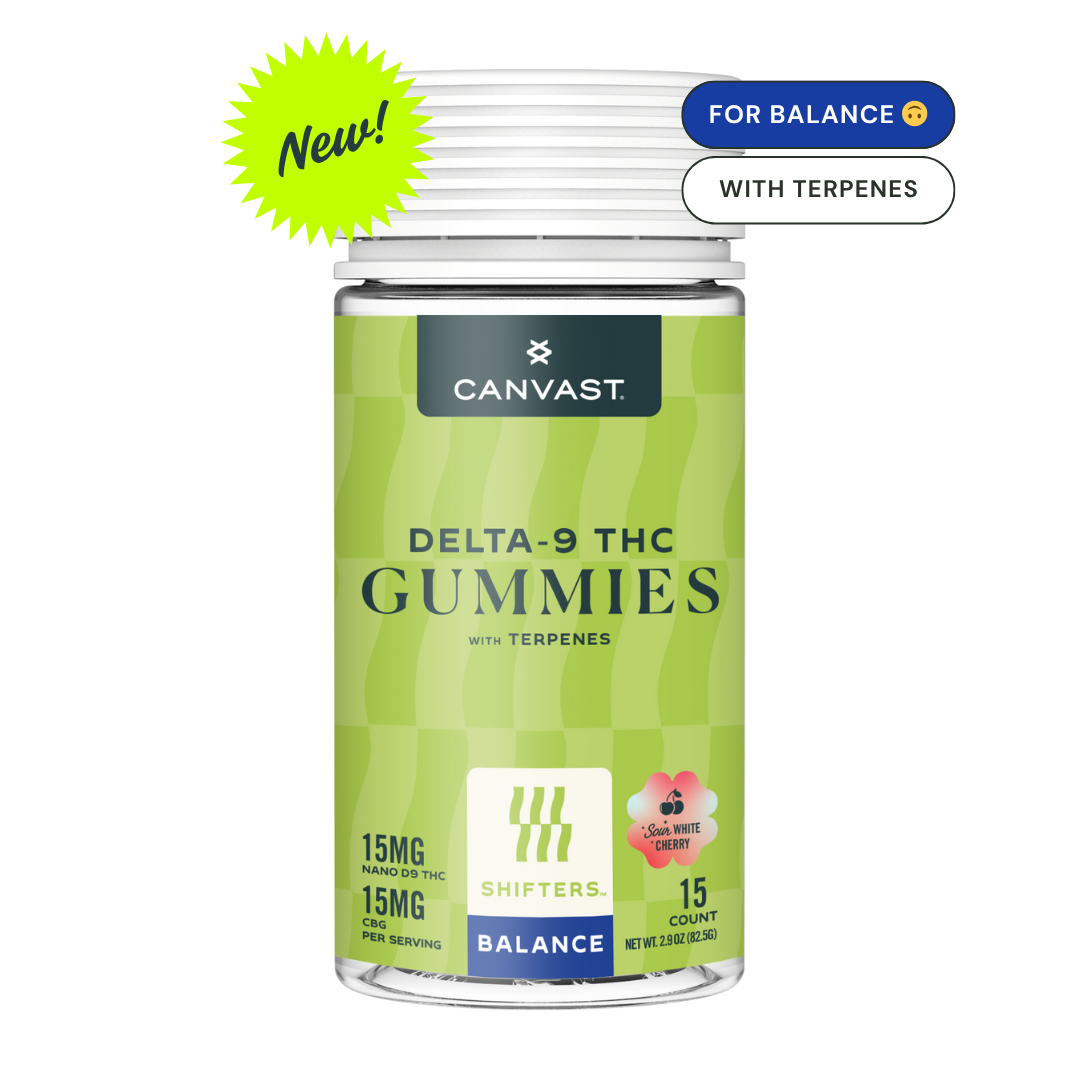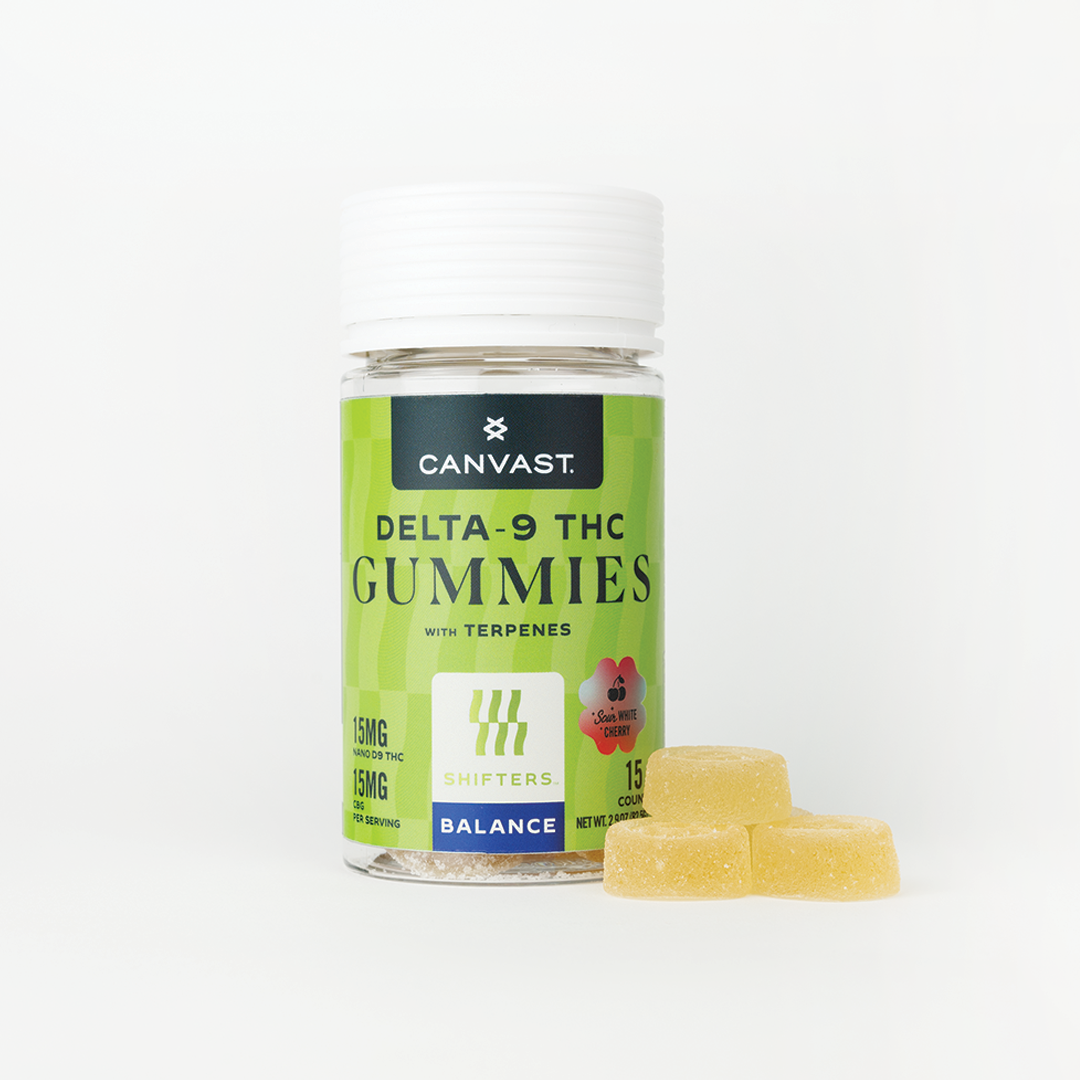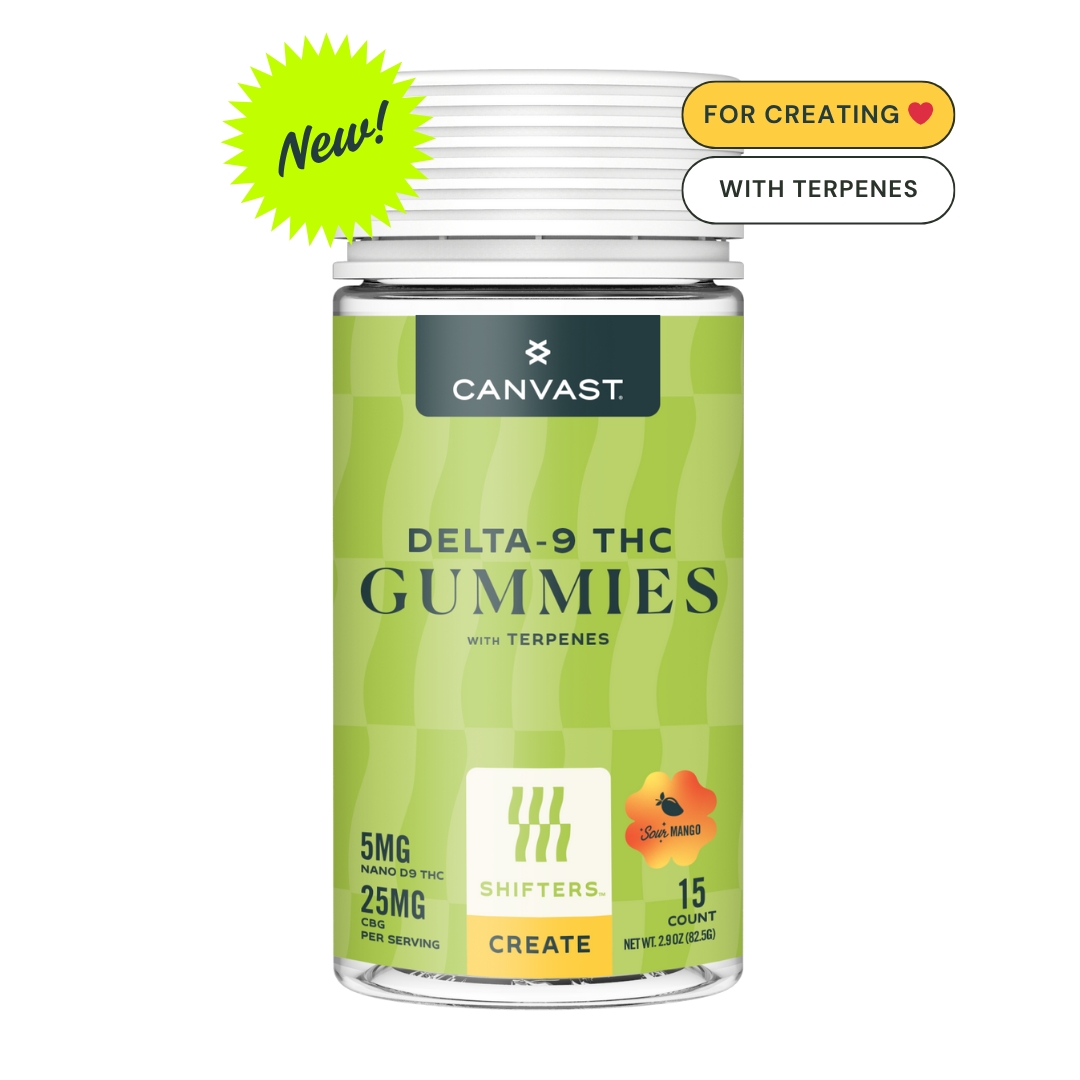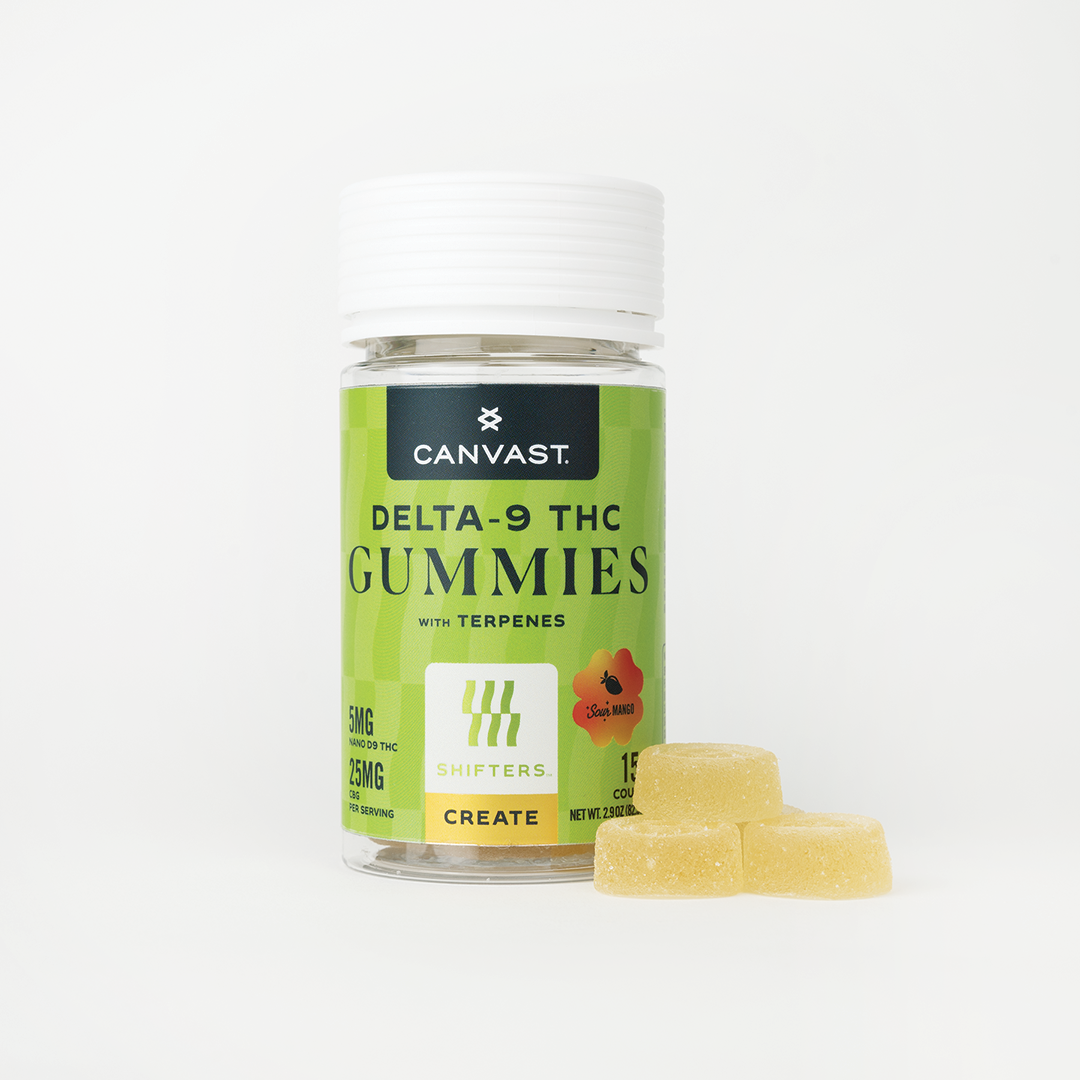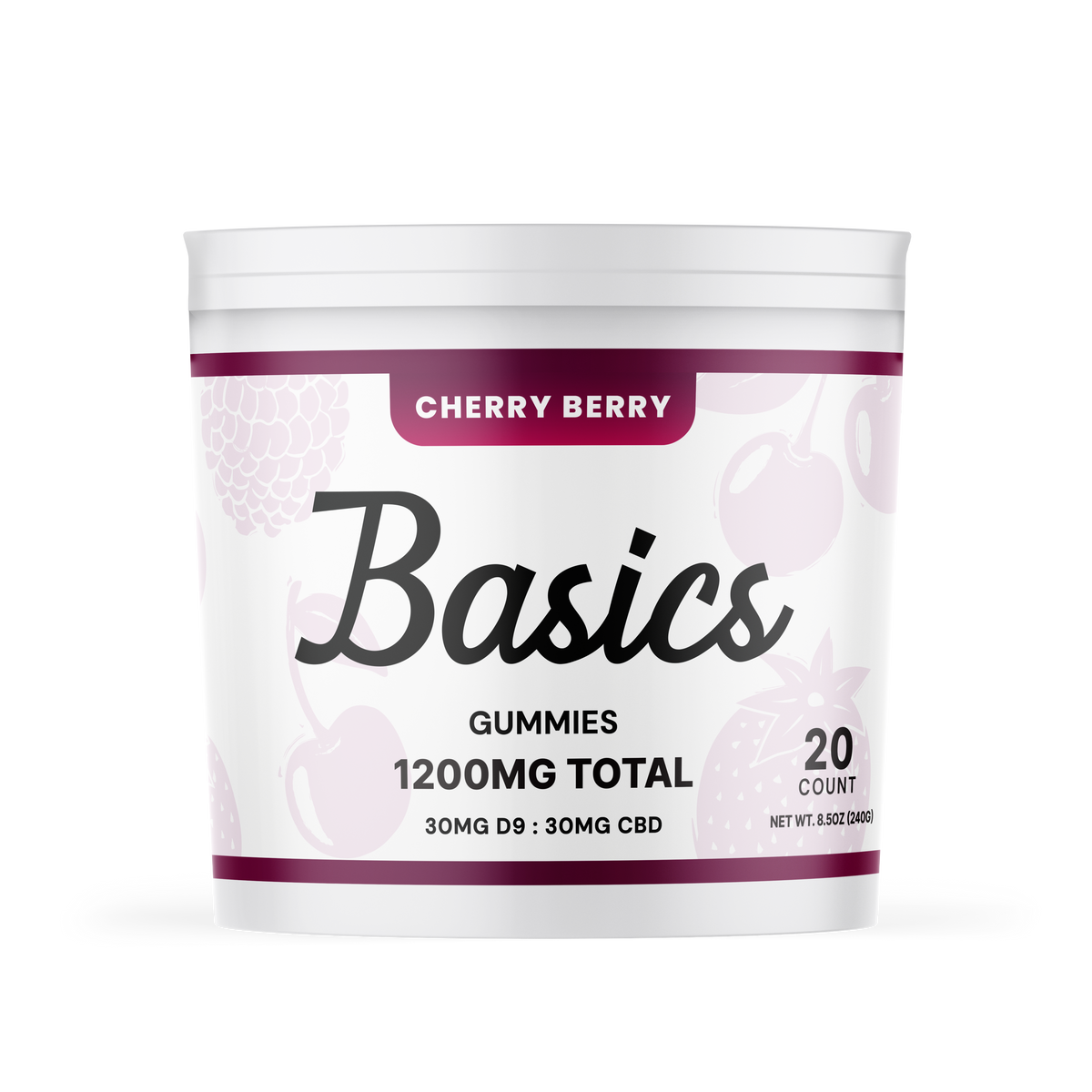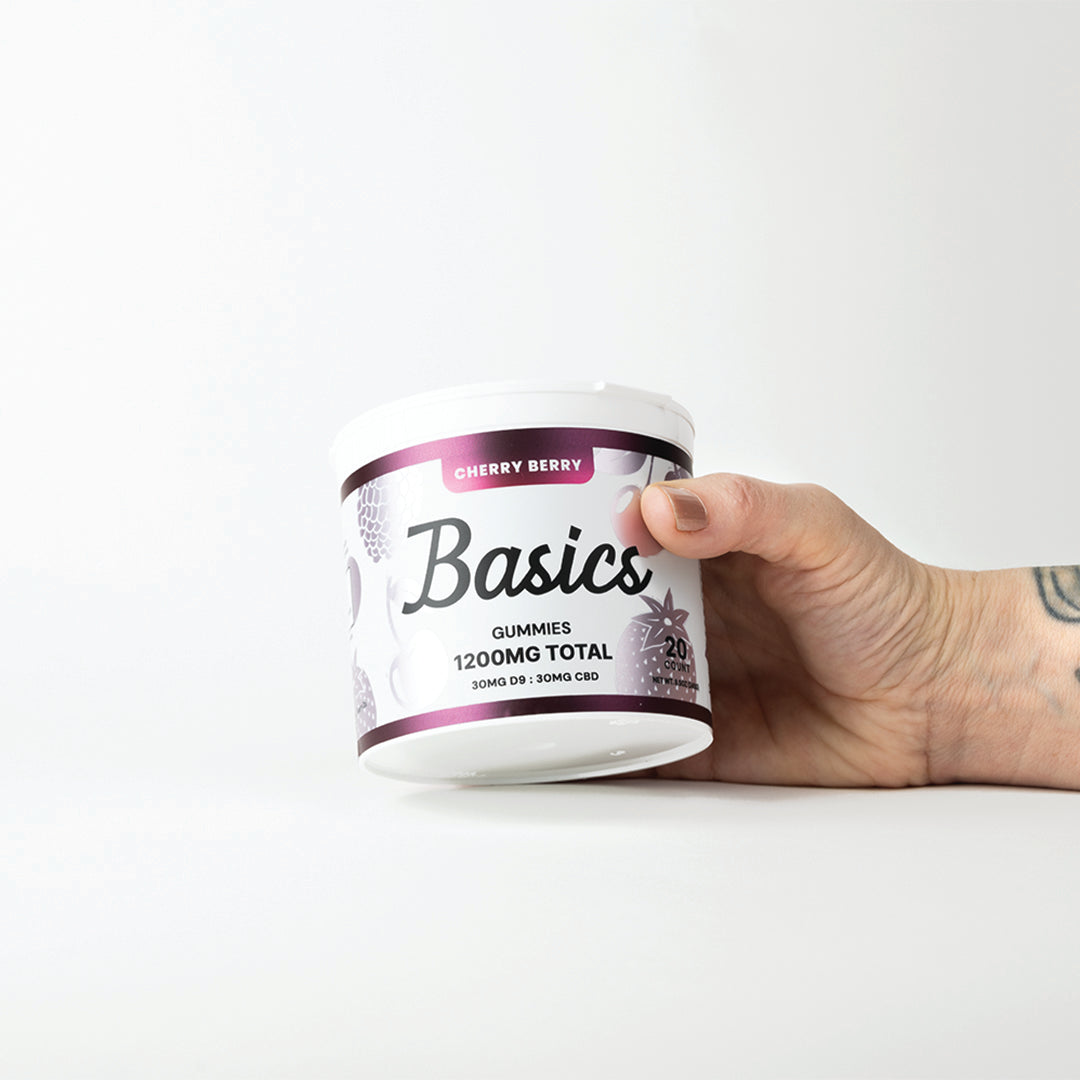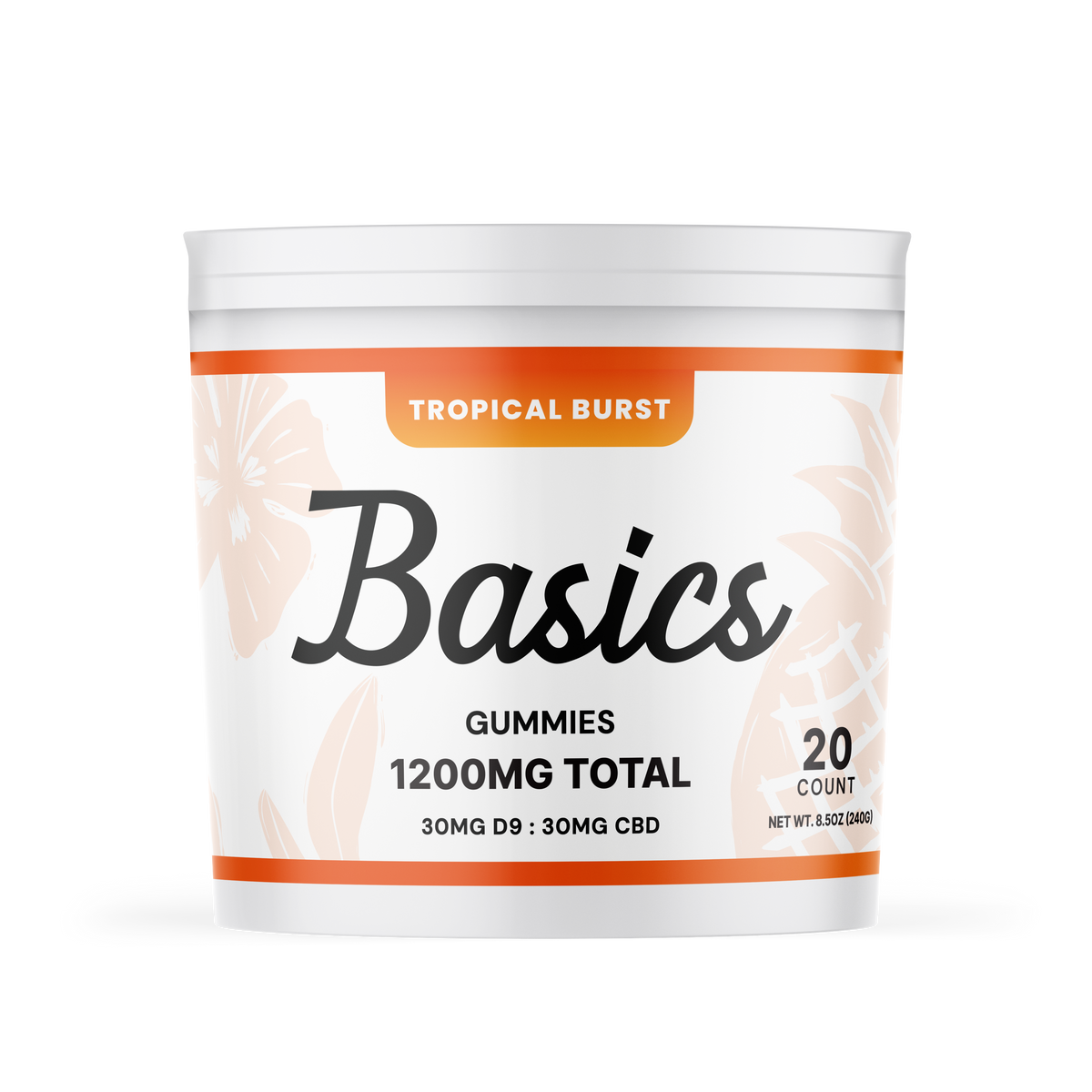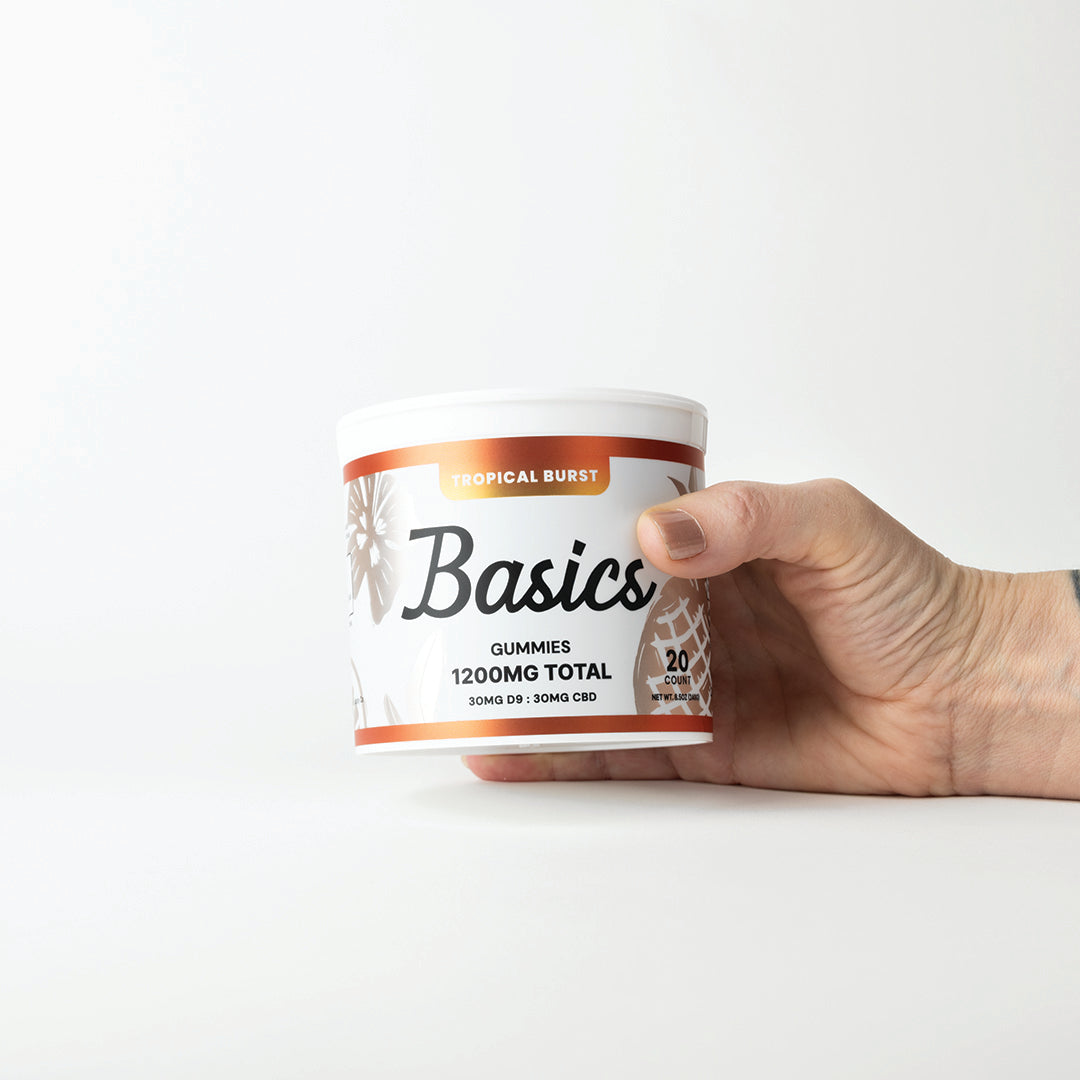How Does Cannabis Make You Feel?
Cannabis, also called marijuana, is a drug made from plants. People can smoke it, eat it, or use a vaporizer. It has chemicals that change feelings by acting on the brain, mainly because of a compound called THC. These changes might include feeling happy, calm, seeing things differently, hunger, and sharpened senses. But, sometimes it can also cause anxiety, confusion, or fear. Canvast Supply Co. has a wide selection of cannabis and CBD items, such as THC gummies and snacks, for various users' needs.
Key Takeaways
- Cannabis can induce feelings of euphoria, relaxation, and altered sensory perception.
- The effects of cannabis can vary widely, with some individuals experiencing negative reactions like anxiety and paranoia.
- Canvast Supply Co. offers a range of cannabis and CBD products, including THC gummies and edibles, to meet the diverse needs of consumers.
- The duration and onset of the cannabis high depend on the method of consumption, with smoking/vaping producing a faster and shorter-lasting effect compared to edibles.
-
Cannabis use can have both short-term and long-term impacts on physical and mental health, which should be considered by users.

Introduction
Cannabis, known as marijuana, is a plant-based drug used for its effects and health benefits for hundreds of years. It comes in many forms, like dried leaves and flowers, resin, and oils. There are also very strong versions like dab and shatter.
What is Cannabis?
Cannabis belongs to a plant family called Cannabaceae. It has three main types: Cannabis sativa, Cannabis indica, and Cannabis ruderalis. The amount of THC and CBD it has changes the high or experience users feel.
Different Names and Forms of Cannabis
People call cannabis many names, such as marijuana and weed. It can be used in different ways, like:
- Dried leaves and flowers (weed)
- Resin (hash)
- Concentrated oil (hash oil)
- Highly potent extracts (dab, shatter)
- Edibles (gummies, baked goods)
Euphoric and Relaxing Effects
The Role of THC in Inducing Euphoria
The key compound in cannabis, THC, brings euphoria and relaxation. It works by exciting the brain's pleasure area. This starts a reaction that makes one feel good and satisfied. People often feel relaxed, happy, and more creative because of this.
Studies show that delta9-THC can cause brain cell death and damage DNA, especially in the hippocampus. This is due to the CB1 receptor. The CB2 receptor is more about immune response. It doesn’t share much of its DNA with the CB1 receptor.
Anandamide and 2-arachidonylglycerol occur naturally in the body. They act like a key in the cannabinoid system. Anandamide gets released by nerve cells under certain stress conditions.
The THC in cannabis increases pleasure signals in our brain. This gives people a feeling of happiness and relaxation. It's part of the reason why people love enjoying cannabis.
High-THC strains are famous for giving powerful and long-lasting euphoria. Those who love cannabis often pick Sativa types for day use. These can make you feel awake and happy. On the other hand, Indica types bring more calming effects.
The terpene caryophyllene is found in the most euphoric cannabis. It's also good for making you feel relaxed and reducing stress.
Cannabis and Altered Perception
When someone uses cannabis, their senses and time perception can change a lot. The active part of cannabis, tetrahydrocannabinol (THC), messes with how our brain handles what we see, hear, and feel. This causes many shifts in how we see and feel the world.
Cannabis often makes everything seem more intense. Colors are brighter, sounds are louder, and things you touch feel stronger. At the same time, time might not feel right - minutes could feel like hours. This is because cannabis can slow down how time feels.
This effect comes from THC messing with the brain's endocannabinoid system. This system is big on controlling how we take in the world and how we feel time. This is why cannabis can lead to such wild changes in our experiences.
Studies show that cannabis can make us think time is stretched out or runs faster than it is. But, these effects change based on how much someone uses and how often. Interestingly, folks who use cannabis a lot might not feel these time twists as strongly. This hints they might get used to the drug's influence over time.
The effects of cannabis on our senses and time are pretty obvious. But, there's still lots we're figuring out about how all this happens. Scientists are working hard to understand just how cannabis, our brain's system, and our perception of the world are all connected. This research is still going on.
Potential Negative Effects
Anxiety, Confusion, and Paranoia
Cannabis may make you feel euphoric, but it can also bring bad effects. This is especially true for new users or those trying strong strains. People might feel anxious, confused, or paranoid. They could feel uneasy, lost, or have strange fears. How bad this gets can change. It's different for each person, where they are, and how much they use.
The bad effects of cannabis, like feeling anxious or paranoid, can really affect people, especially teens. Knowing these dangers and getting help is very important if you're thinking about using cannabis.
Medical Uses of Cannabis
Cannabis is known for more than just having a good time. It may help in many medical ways. Studies show it could ease chronic pain and muscle spasms linked to illnesses like multiple sclerosis.
It might also help people with sleep issues from fibromyalgia or sleep apnea. For some forms of epilepsy, like Dravet and Lennox-Gastaut syndrome, medical cannabis shows promise. But, the government's ban slows down research into these benefits.
Cannabis has been a big help for adults dealing with the nausea from chemotherapy. It’s been found useful in fighting chronic pain too. Studies also show it could ease spasticity in patients with multiple sclerosis.
In places like Colorado and Oregon, medical cannabis is common for various illnesses. Pain is a top reason people use it. In Colorado, 94% of users necessary to get a medical card said they had severe pain.
Using medical cannabis by pain patients has even cut down opioid use by 64%. Research shows it might help some patients reduce their opioid prescriptions. This could mean a shift in how we manage certain types of pain.
But, the U.S. government's limitations make it hard to dig deeper into cannabis. The plant’s different strains can cause varyingly strong effects. This makes it tricky to know how it will help each person.
While some medicines with cannabis are okayed by the FDA, using the whole plant isn’t. Despite these issues, cannabis as medicine keeps gaining support in treating many health problems. With more studies, its use in medicine could grow even more over time.
The Munchies and Appetite Stimulation
Cannabis is well-known for making people hungry, often called "the munchies." The active part in cannabis, tetrahydrocannabinol (THC), affects the brain's hunger and food-taking control centers.
Research shows that cannabis makes the brain's appetite control zone more active. This makes people feel hungrier and want to eat more. In one research, mice ate smaller but more frequent meals, despite staying as active overall.
THC boosts appetite by affecting the brain's endocannabinoid system. This system manages how we eat and use energy. By binding to CB1 receptors, THC increases dopamine, making eating more pleasurable and reducing self-control.
Cannabis's impact on hunger can be good or bad. For example, it can help people with diseases that lessen their desire to eat, like some cancer patients. But, for those watching their weight, the munchies might make them eat too many unhealthy snacks, leading to weight gain.
One way to fight weight gain while using cannabis is by choosing healthy snacks. This can help satisfy food urges without adding extra sugar and calories. Also, looking into endocannabinoid antagonists might offer new answers to obesity and related health problems.
|
Key Findings on Cannabis and Appetite Stimulation |
|
Conclusion
Cannabis can cause a mix of effects, good and bad. It can make people feel happy, calm, and see things differently. But, using too much can bring on fear, confusion, and worry. Also, using a lot over time might raise the chance of mental and physical problems.
Yet, medical cannabis is helping some health issues. More than 55 million people in the U.S. have tried it, and many believe in its medical power. This could lead to lighter laws on it soon. Knowing the risks and benefits of cannabis is key to using it wisely.
Currently, both medical and non-medical cannabis is being made legal in more places. It's important to carefully think about the good and bad parts. By keeping up with facts and science, people can choose wisely about using cannabis. They can look after their health and happiness better.
FAQ
What is cannabis and how does it affect the body and mind?
Cannabis comes from a plant and can be consumed in many ways. This includes its dried leaves and flowers, resin, oil, and edibles. The main compound in it is THC, which makes you feel high, relaxed, changes how you see things, and makes you want to eat more.
What are the different names and forms of cannabis?
People call cannabis many names like marijuana, weed, pot, and grass. It comes in various forms too, such as dried leaves and flowers or resin (known as hash), oil (hash oil), and very strong extracts (dab, shatter).
How does THC induce a sense of euphoria and relaxation?
THC (the main part of cannabis) gives users a good feeling and helps them relax. This compound acts on the brain, triggering the release of dopamine. Dopamine makes you feel happy and content.
How can cannabis alter perception and the sense of time?
When you use cannabis, your senses and time might seem different. You might see colors as brighter, hear sounds louder, and feel like time is stretching out. This is because THC affects how your brain processes sensory info.
What are some potential negative effects of cannabis use?
While cannabis can feel good, it might not for everyone, especially new users. It could cause anxiety, confusion, or paranoia. You might feel uneasy, lost, or scared for no real reason.
What are some potential medical uses of cannabis?
Besides just for fun, cannabis has medical benefits too. It could help with chronic pain, muscle spasms, sleep problems, and certain types of epilepsy. Some people with these issues might find it helpful.
Why does cannabis stimulate appetite, leading to the "munchies"?
Cannabis is famous for making people hungry, known as “the munchies.” THC affects parts of the brain that make you want to eat. This is why you might feel like eating more than usual.


